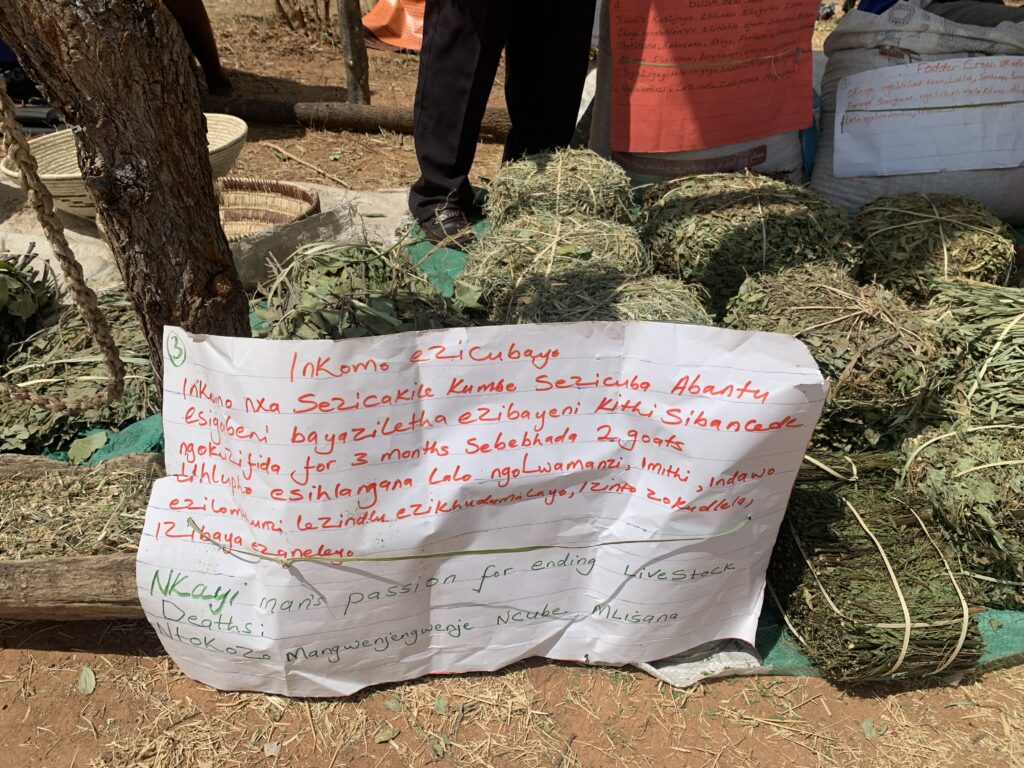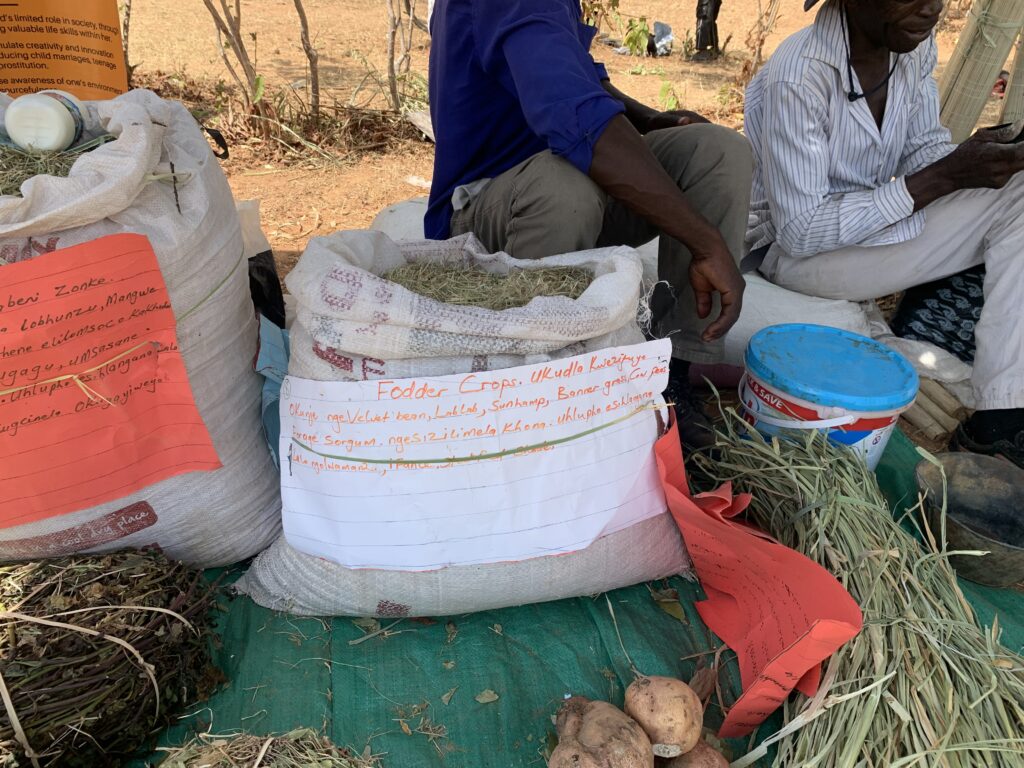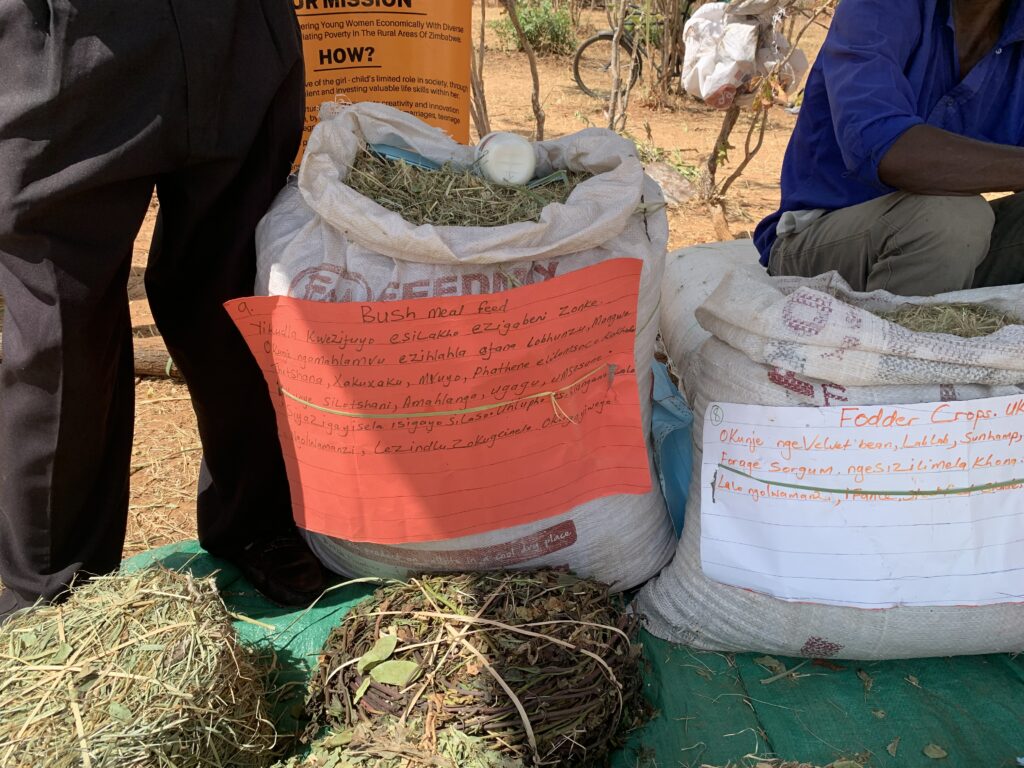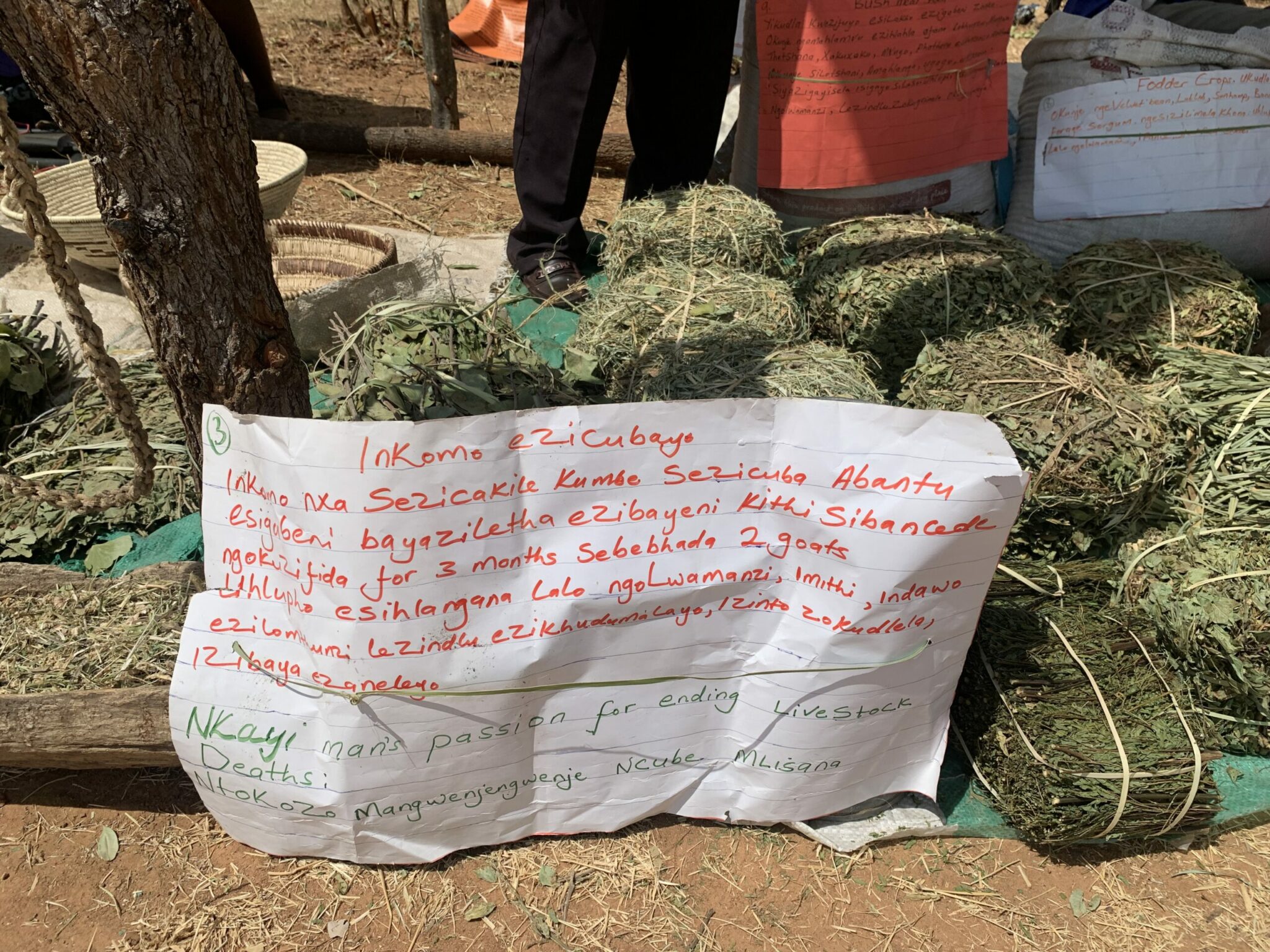A dedicated livestock farmer in Nkayi has taken matters into his own hands to combat El Niño-induced drought and mitigate cattle loss within his community.
Ntokozo Ncube, 51, also known locally as Mangwenjengwenje, has been cultivating fodder crops and producing bush meal feed to nourish his livestock and those belonging to other community members.
CITE recently interviewed Ncube while he showcased his feed at the Imiklomelo ka Dakamela ceremony in Nkayi.
Ncube is currently undergoing training provided by USAID-funded Amalima Loko program on cultivating stock feed and enhancing animal nutrition and production.



His expertise has become a valuable resource within the community, with many livestock farmers relying on him for cattle care.
Due to the high demand for his services, Ncube has initiated programs to train fellow community members on feed production techniques.
“I cultivate fodder crops like lablab, velvet bean, and Sunhemp to serve as stock feed,” Ncube explained. “I also create bush meal feed by grinding tree leaves, maize cobs, and other plants together with molasses to create a nutritious feed for livestock.”
The ongoing drought has severely impacted livestock in the community, leading to a surge in demand for Ncube’s feed.
“As the drought intensifies, the demand for stock feed keeps rising,” Ncube said. “While I have my own herd to care for, many other community farmers are facing drought-related challenges with their herds. They bring their cattle to me for care. Unfortunately, due to the lack of rainfall, some of the fodder crops haven’t performed well. Consequently, I’m primarily relying on producing bush meal feed to meet the demand.”
Ncube plays a crucial role in rehabilitating cattle on the brink of death due to hunger and malnutrition.
“I provide a feeding program to nurse these animals back to health,” he said. “I also care for orphaned calves whose mothers died at birth or shortly after. I nurture them for about six months before returning them to their owners. If additional time is needed, I can look after them for up to a year. As a token of appreciation for my services, the cattle owners typically compensate me with two goats.”
Ncube acknowledges his limitations, including water scarcity, limited space, and a lack of manpower.
“This past rainy season was very poor, resulting in inadequate water supplies,” he said. “We have one functional borehole that I rely on for water, but it’s not in the best condition. This creates challenges when I have large orders to fulfill. My only helpers are my children, but they are young, and I don’t want to overburden them.”
“The space I have available is limited. I keep the cattle brought by community members in a kraal at my homestead. With the growing need for my services, I plan to approach my community leaders to request additional land to expand this project. Additionally, I aim to train young people in the community to ensure this initiative can continue even after I’m no longer able to manage it myself.”
Mhlupheki Dube, the Livestock Coordinator for Amalima Loko, confirmed their efforts to implement projects that enhance animal nutrition.
However, he acknowledged the challenges posed by the drought that destroyed some of the fodder crops.
“At Amalima Loko, we actively promote fodder production among livestock farmers to improve animal nutrition, which ultimately leads to better animal production,” Dube explained. “We recognise the limitations of our grazing lands and believe that farmer-produced feed can bridge this gap. We promote the cultivation of three primary fodder crops: lablab, velvet bean, and Sunhemp.”
“We utilise a lead farmer approach, where we train selected individuals who then become responsible for training other farmers within their designated areas. The goal is for all participating farmers to cultivate their own fodder crops. This year, we had a target of 48 plots, each measuring 0.5 hectares, per ward. Each cluster encompasses roughly five wards. Unfortunately, most of the crops failed due to the El Niño-induced drought. Nevertheless, our objective remains to empower farmers to produce their own feed, allowing them to maintain healthy livestock and promote breeding and production.”

